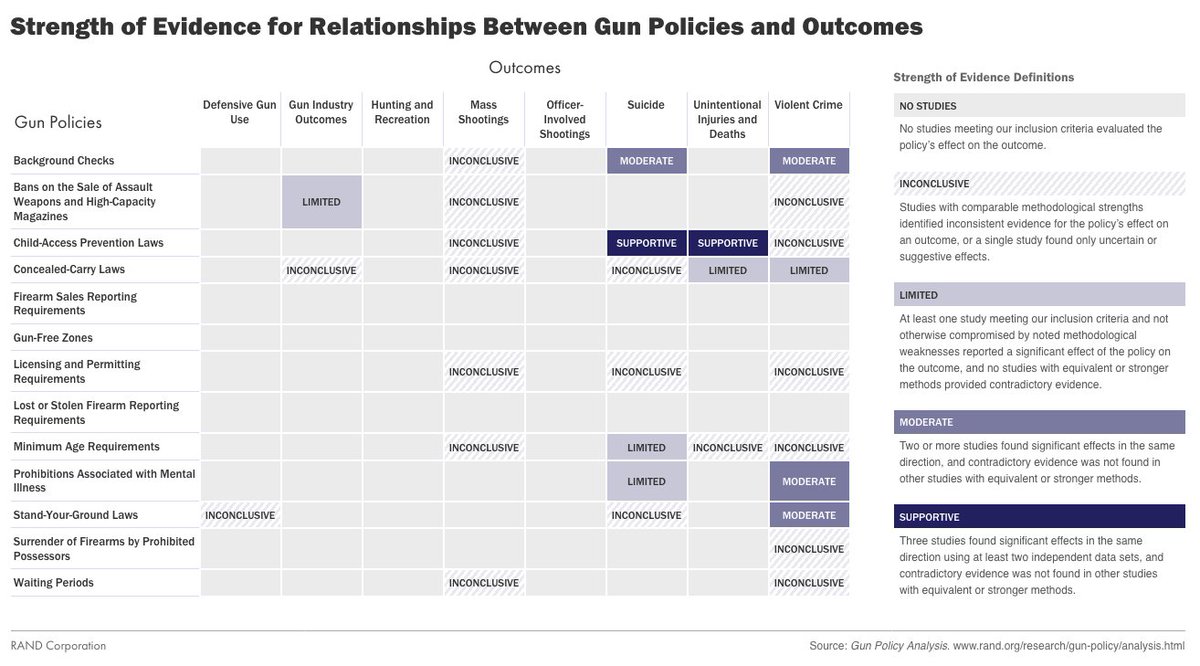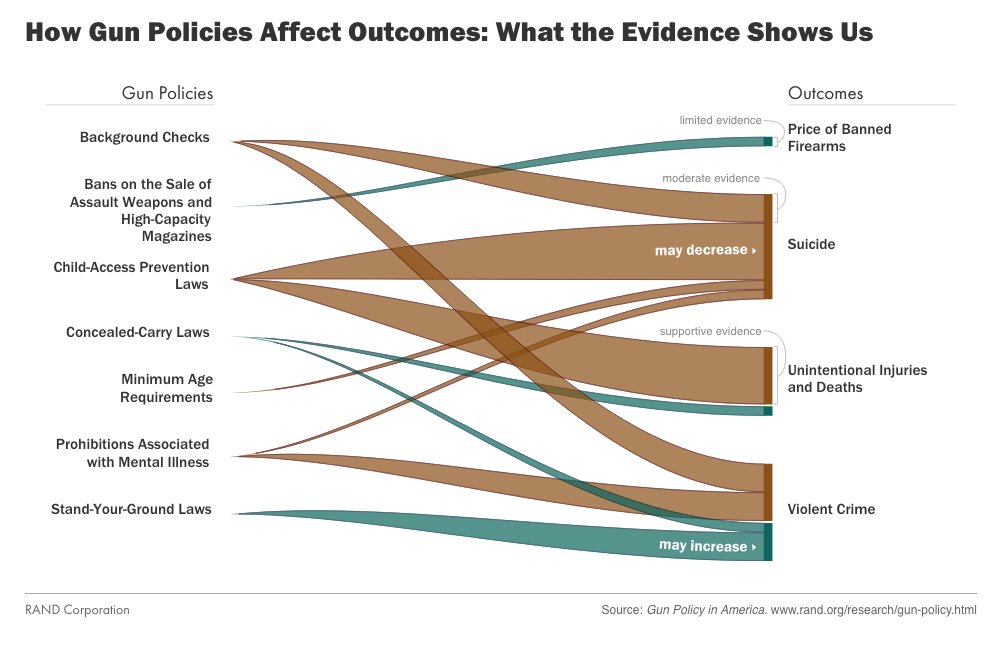There is *a lot* to explore in the link above. This thread provides an overview.
📍injuries & deaths
📍mass shootings
📍defensive gun use
📍hunting participation
So what does the evidence show?
We found important gaps in existing research.

These understudied outcomes are often central concerns in gun policy debates.
(Brown lines mean "decrease," teal lines mean "increase," and the thicker the line, the stronger the evidence.)

This does not mean that these policies are ineffective. It means strong studies have not been conducted.
You can explore our in-depth analysis here: r.rand.org/6xb5
We surveyed 95 gun policy experts from across the ideological spectrum to identify where there might be consensus or opportunities for compromise.
We asked these experts to estimate how much certain policies would alter outcomes.
📍policies that allow the carrying of concealed weapons without permits
📍the elimination of gun-free zones
📍expanded mental health-related prohibitions
📍the required reporting of lost/stolen #guns
📍child-access prevention campaigns
📍required surrender of firearms by those prohibited from possessing guns
Check out this interactive: r.rand.org/6xb6
We're making this data set available to researchers and the public: r.rand.org/6xb8
You can sign up to get updates here: r.rand.org/6xbb


